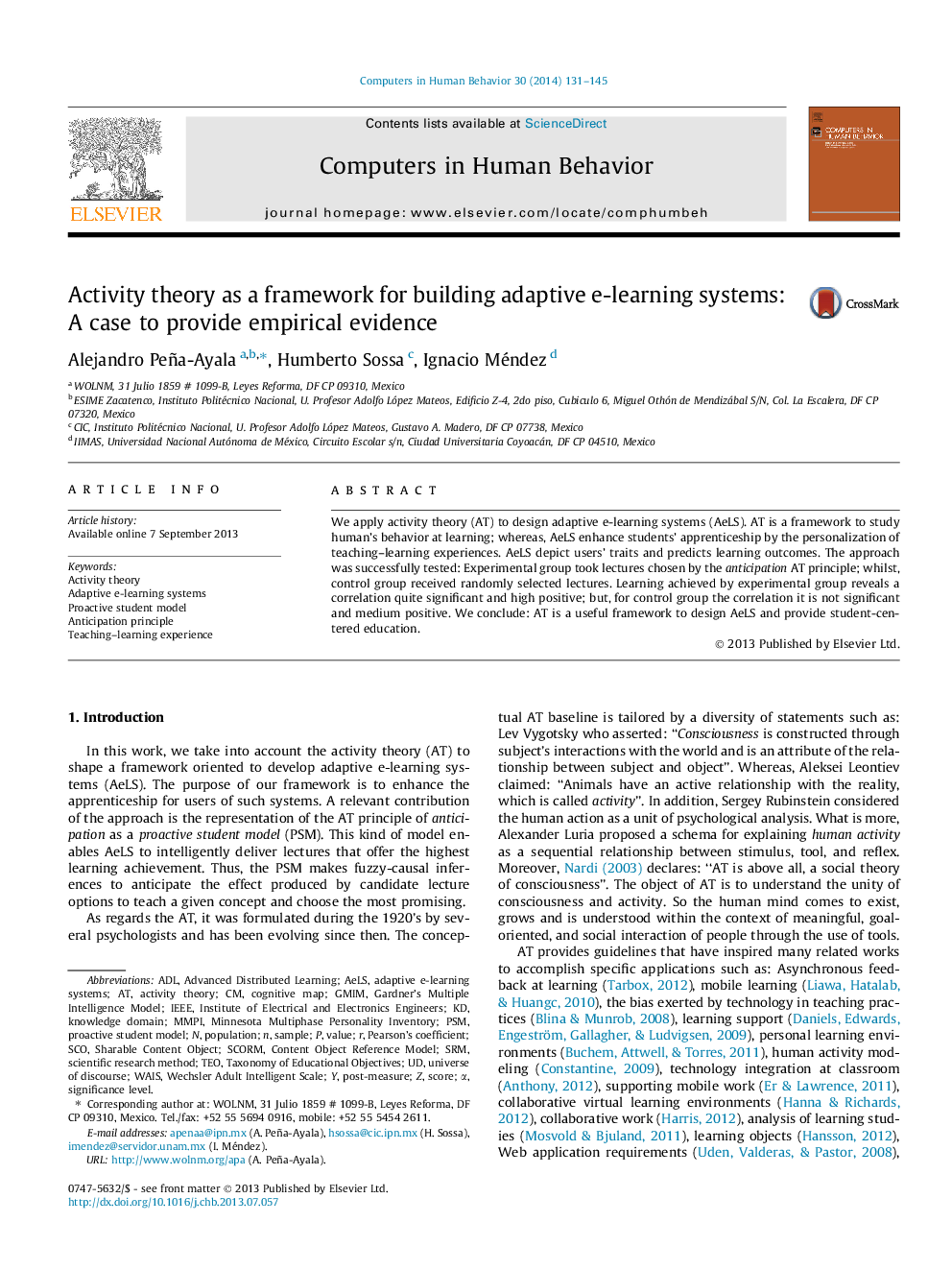| Article ID | Journal | Published Year | Pages | File Type |
|---|---|---|---|---|
| 350661 | Computers in Human Behavior | 2014 | 15 Pages |
•Activity theory (AT) offers a baseline to analyze human behavior at learning.•A framework to build adaptive e-learning systems is set as a network organization.•Anticipation AT principle is used to adapt teaching for enhancing student learning.•Anticipation AT principle is deployed by a proactive student model (PSM).•Student learning is stimulated when delivered lectures are chosen by a PSM.
We apply activity theory (AT) to design adaptive e-learning systems (AeLS). AT is a framework to study human’s behavior at learning; whereas, AeLS enhance students’ apprenticeship by the personalization of teaching–learning experiences. AeLS depict users’ traits and predicts learning outcomes. The approach was successfully tested: Experimental group took lectures chosen by the anticipation AT principle; whilst, control group received randomly selected lectures. Learning achieved by experimental group reveals a correlation quite significant and high positive; but, for control group the correlation it is not significant and medium positive. We conclude: AT is a useful framework to design AeLS and provide student-centered education.
Graphical abstractFigure optionsDownload full-size imageDownload as PowerPoint slide
